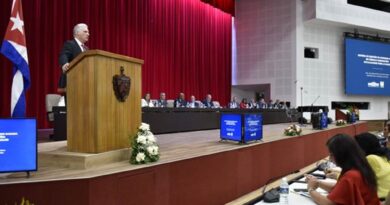Cuba to Reduce Use of Gases with Impact on the Greenhouse Effect

In this sense, it is necessary to work urgently to reduce their use and gradually replace them in the refrigeration and air conditioning sector with alternative environmentally friendly gases, Espinosa said.
Referring to the initial actions aimed at creating the conditions so that the country can first ratify the amendment and then join in its fulfillment, the expert underlined the realization of three training workshops held from this Tuesday until Thursday at the National Hotel of Cuba, in Havana.
Among the issues to be discussed are refrigerant gases and alternative technologies with low global warming potential to eliminate ozone-depleting substances and HFCs in the refrigeration and air conditioning branches, as well as energy efficiency in both.
In recent years the increase in the amount of HFCs on the market has been fuelled by the growing demand for refrigeration equipment, especially in developing countries with a growing middle class population and in warmer countries.
For this reason, on October 15, 2016, the 197 members of the Montreal Protocol signed the Kigali Amendment to gradually reduce the use of HFCs worldwide.
This agreement will reinforce the Paris Agreement’s goal of keeping global warming below 1.5 degrees Celsius to two degrees Celsius by 2100. (Prensa Latina)



